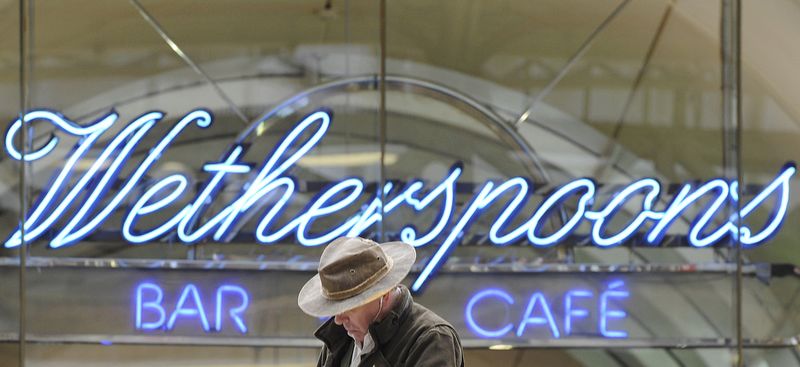China’s Xi speaks with Trump by phone, discusses Taiwan and bilateral ties
Investing.com -- JD Wetherspoon (LON:JDW) on Wednesday reported stronger-than-expected third-quarter sales growth, but maintained cautious full-year guidance and flagged a £60 million annual cost headwind from upcoming U.K. labor changes.
For the 13 weeks to April 27, like-for-like sales rose 5.6%, ahead of the 5% already reported for the first seven weeks of the period and topping forecasts from Morgan Stanley (NYSE:MS) and Jefferies.
The performance implies 6.3% growth in the final six weeks of the quarter. Year-to-date like-for-like sales are up 5.1%.
Total (EPA:TTEF) sales in the third quarter rose 5% and are up 4.2% for the year to date. The contribution from net pub openings and disposals was a 60-basis point drag in the quarter, compared with a 90-basis point impact in the first half.
The company has sold seven pubs and opened two since the start of the fiscal year, resulting in a current estate of 795 pubs. It plans to open four to five more pubs this year and 10 in fiscal 2026.
The company maintained its guidance for a “reasonable outcome” for the full year, using the same language as in its half-year update.
It attributed the improved trading in the quarter to favorable weather and customer interest in new products, including gourmet burgers and international beer brands.
Despite the sales beat, analysts highlighted cost pressures ahead. The company reaffirmed expectations for a £60 million annualized increase in labor costs stemming from the U.K.
Budget measures set to take effect in April 2025. Jefferies said the company may mitigate some of the impact through pricing, and noted its competitive pricing position may help it manage wage inflation better than peers.
Morgan Stanley’s fiscal 2025 pretax profit estimate remains at £77 million, in line with consensus.
Each 1% increase in full-year sales volumes is estimated to add £10 million to pretax profit, assuming a 50% drop-through rate.
JD Wetherspoon raised its full-year net debt guidance to £720 million to £740 million, up from £680 million to £700 million, citing a larger share buyback program totaling £40 million.
